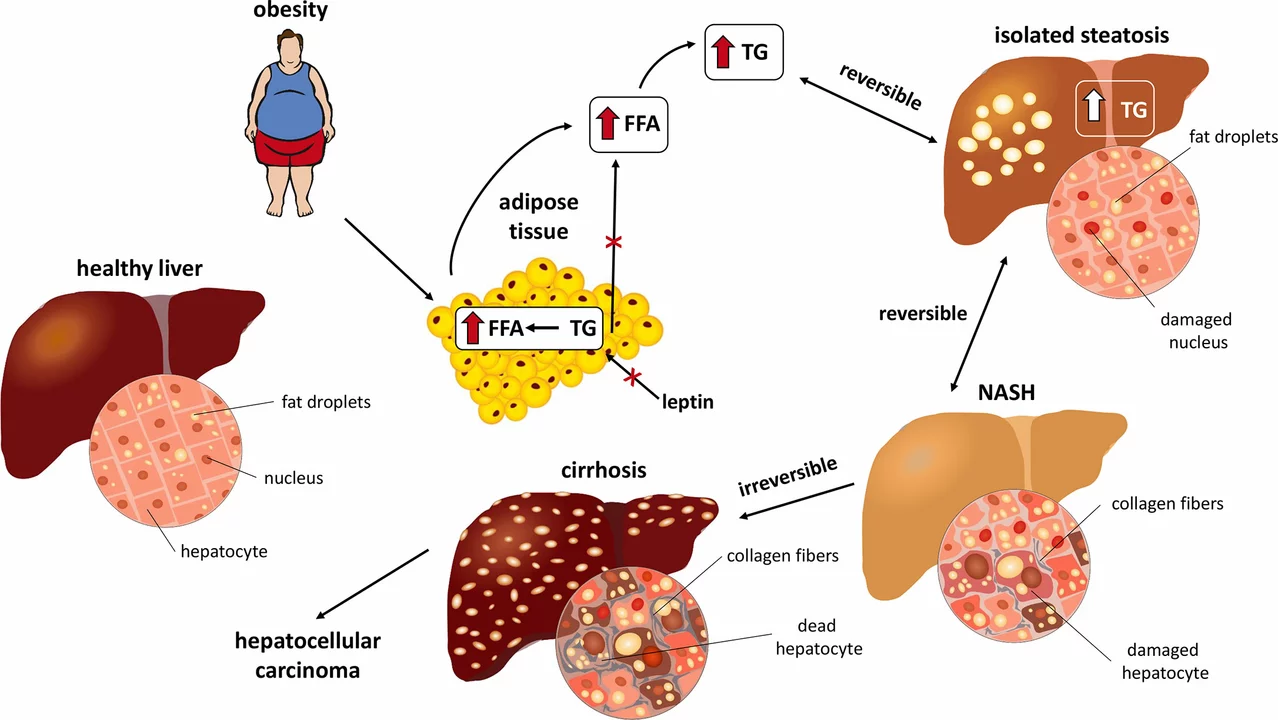Hepatic Encephalopathy: What You Need to Know for Real Life
Confused thinking, mood swings, and even trouble staying awake—these are just a few signs that hepatic encephalopathy (HE) is at play. This is a brain issue tied to liver disease, and it's more common than most people realize. If you or a loved one face a liver condition, knowing how HE sneaks up can help you act fast and avoid full-blown trouble. It’s not just forgetfulness; it can change a person’s ability to function day to day.
HE happens when the liver can't filter out toxins like ammonia. These chemicals, left unchecked, move to the brain and throw things out of balance. You might notice someone suddenly getting confused, forgetting where they put things, or acting out of character. Sometimes it starts as a mild fog—maybe some fumbled words or weird sleep patterns. In more severe cases, it can mean serious behavior changes, agitation, or even falling into a coma.
Managing HE starts by watching for these early warning signs. Does your loved one seem more forgetful lately? Have they lost interest in conversation, look drowsy at weird times, or start having trouble writing or drawing? Catching these clues early and getting checked by a doctor can make a huge difference.
Treatment isn’t one-size-fits-all. For many people, doctors recommend lactulose—it’s a syrup that helps flush ammonia out through the gut. Others might use antibiotics to cut down on the bacteria that make toxins. A lot of people worry about side effects, like diarrhea from lactulose, but tweaking the dose often solves that problem. It’s always worth talking openly with the healthcare team instead of just dropping a med. With regular check-ins, most people can manage symptoms—and stay out of the hospital.
Everyday tips matter too. Getting enough water keeps things moving smoothly in the gut. A high-protein diet used to be a no-go for folks with HE, but now, doctors usually recommend not going too low on protein unless there’s a specific reason. Just swap out red meat for plant-based or dairy proteins—they’re easier on the system. Avoid sedatives and sleep pills unless the liver doctor says otherwise, since these meds can make symptoms much worse.
Most people don’t want to give up on work, hobbies, or family time. Keep life as normal as possible, but stay alert for changes in mood, memory, or sleep. Family and close friends often spot problems before the patient does. Don’t brush off a weird day as ‘just stress’ if it becomes a pattern. If things spiral—like sudden confusion or trouble walking—call for help right away.
It’s okay to ask questions, even if you feel awkward bringing up brain fog or mood swings. Docs hear these concerns every day and can help tweak medications or offer referrals to support services. If you need extra help, connect with liver support groups; real people can offer day-to-day tricks and just plain empathy.
Hepatic encephalopathy isn’t something to ignore. With the right game plan, clear communication, and some patience, there’s a lot you or your family can do to stay on top of it. Staying educated and getting support means you’re not facing it alone—ever.
The Connection Between Hepatic Encephalopathy and Autoimmune Liver Disease
In my latest research, I've discovered a fascinating connection between hepatic encephalopathy and autoimmune liver disease. Hepatic encephalopathy is a neuropsychiatric disorder that occurs when the liver fails to eliminate toxins from the bloodstream, which in turn affects the brain. Autoimmune liver disease, on the other hand, is when our immune system mistakenly attacks and damages our liver cells. It turns out that autoimmune liver diseases, such as autoimmune hepatitis or primary biliary cholangitis, can lead to liver damage and impair its function. As a result, this can cause a buildup of toxins in the bloodstream, eventually leading to the development of hepatic encephalopathy. It's crucial for us to be aware of these connections to better understand, prevent, and treat such conditions.
